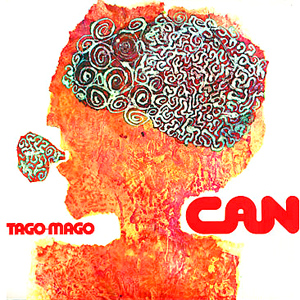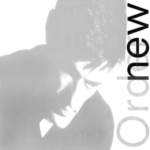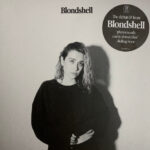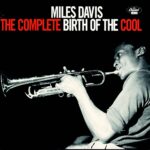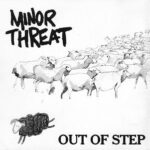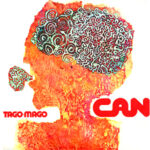 “Can – Tago Mago” is a groundbreaking and influential album that pushed the boundaries of rock music and established German band Can as one of the most innovative and experimental acts of the era. Released in 1971, the album defies categorization, blending elements of psychedelic rock, krautrock, avant-garde, and free jazz to create a mesmerizing and immersive sonic experience.
“Can – Tago Mago” is a groundbreaking and influential album that pushed the boundaries of rock music and established German band Can as one of the most innovative and experimental acts of the era. Released in 1971, the album defies categorization, blending elements of psychedelic rock, krautrock, avant-garde, and free jazz to create a mesmerizing and immersive sonic experience.
The album opens with the 18-minute epic “Paperhouse,” a mesmerizing and hypnotic journey that sets the tone for the rest of the record. The track’s repetitive and trance-like groove, driven by Jaki Liebezeit’s mesmerizing drumming and Holger Czukay’s pulsating bass lines, creates a captivating and otherworldly atmosphere. The addition of Damo Suzuki’s ethereal vocals adds a layer of mystique to the composition.
One of the standout tracks on the album is the sprawling “Halleluhwah,” which clocks in at over 18 minutes. The song is a masterclass in improvisation, with the band members seamlessly navigating through various musical passages, creating an ever-evolving and dynamic sonic landscape. The track’s fusion of psychedelic rock and free jazz elements showcases Can’s ability to push the boundaries of conventional song structures and embrace experimentation.
Another notable moment on the album is “Mushroom,” a mesmerizing and trippy track that features Suzuki’s distinctive and enigmatic vocals. The song’s minimalist and repetitive groove, coupled with the use of unconventional instrumentation and sound effects, creates an eerie and surreal atmosphere. “Mushroom” encapsulates the avant-garde and boundary-pushing nature of Can’s music.
Furthermore, “Oh Yeah” stands out as a funk-infused track that showcases the band’s ability to incorporate diverse musical influences into their sound. The infectious rhythm, propulsive bassline, and layers of psychedelic textures create a captivating and groovy listening experience.
The album also includes the unconventional and experimental “Aumgn,” a 17-minute-long sonic collage that defies traditional song structures. The track incorporates a variety of unconventional sounds, from tape manipulations to eerie vocal chants, creating an unsettling and atmospheric journey that challenges the listener’s expectations.
The album’s closing track, “Bring Me Coffee or Tea,” provides a more accessible and melodic conclusion to the album. The song’s catchy and upbeat rhythm, coupled with Suzuki’s energetic vocals, creates a sense of closure and resolution after the experimental and adventurous journey of the album.
Overall, “Can – Tago Mago” is a groundbreaking and visionary album that showcases the band’s unparalleled creativity and willingness to explore new sonic territories. Its fusion of diverse genres and experimental elements created a blueprint for future generations of artists. The album’s unconventional song structures, hypnotic grooves, and avant-garde sensibilities make it a seminal and influential work in the realm of experimental rock music. “Tago Mago” remains a testament to Can’s innovative spirit and their enduring legacy as pioneers of the genre.
This post has already been read 288 times!
